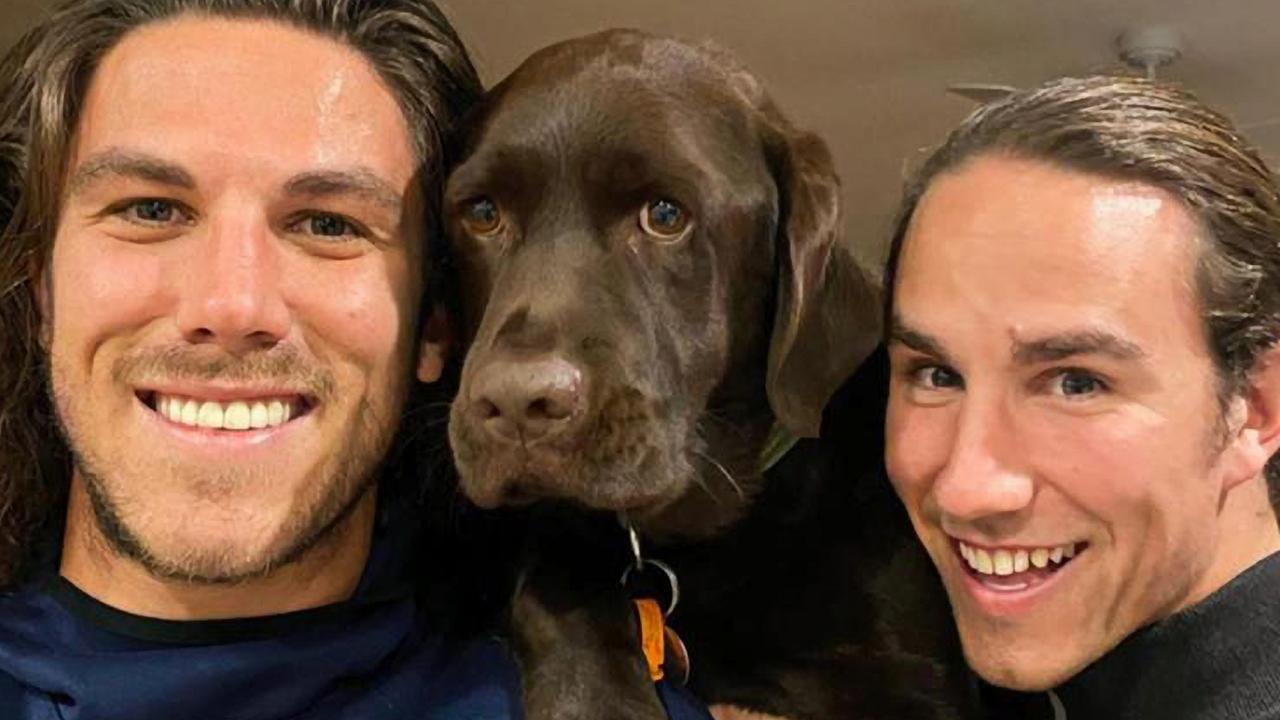WikiLeaks founder Julian Assange poses flight risk if granted bail
WikiLeaks founder Julian Assange is a flight risk if granted bail because his supporters have asked numerous countries to hide him from US authorities.
Crime in Focus
Don't miss out on the headlines from Crime in Focus. Followed categories will be added to My News.
Julian Assange is a flight risk if granted bail because his supporters have been plotting for him to hide from United States authorities in either France, Mexico, or Germany.
The 49-year-old Australian will appear before Judge Vanessa Baraitser on Wednesday night as he tries to get out of London’s maximum security Belmarsh prison.
Judge Baraitser ruled this week that Assange could not be extradited to the United States on spying and computer hacking charges because he was a suicide risk if sent there.
However, the convicted bail dodger’s chances of getting out from remand were hampered when the Mexican president Andres Manuel Lopez Obrador offered him asylum.
It was understood that the WikiLeaks camp has also been in discussions with France, Germany and Switzerland as other potential places to seek asylum to avoid extradition to the United States.
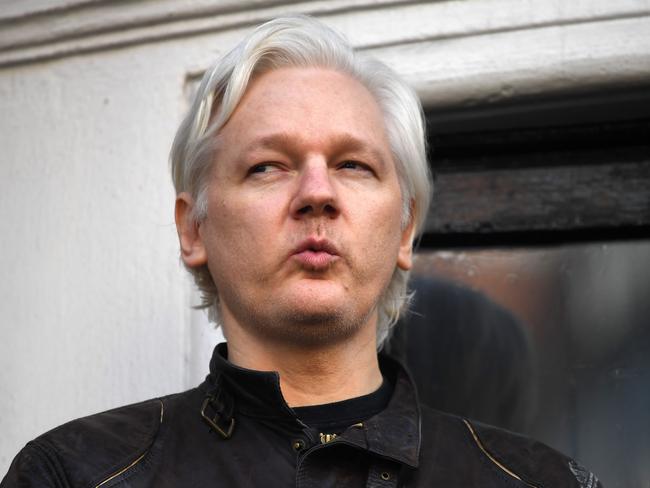
Assange breached bail and spent seven years hiding in the Ecuadorean embassy in London after he was ordered to be extradited to Sweden in 2012.
That case was later dropped, but Assange was sentenced to 50 weeks’ jail for the bail offence.
There are concerns in Britain about the case, which has dragged on for almost a decade.
Iain Duncan-Smith, former British Conservative Party leader, told News Corp Australia that Assange’s case would set a precedent.
“As far as I’m concerned you either have an extradition treaty with America or you don’t have a treaty, he will have to go and face the music,” he said.
“The United States has a proper legal system and proper procedures.”
Judge Baraitser had dismissed Assange’s defence team’s claims in her judgment, finding that he was acting as a hacker, not a journalist when he helped US soldier Chelsea Manning get access to hundreds of thousands of documents in 2010 and 2011.
Those documents were then dumped online, including the names of US informants in Afghanistan and Iraq.
That publication, according to the judgment, forced at least 50 US informers to flee their country fearing for their lives.
British hacker Lauri Love was the first to use mental illness as a defence that blocked his extradition to the United States.
The Anonymous cyber geek won a British High Court Appeal in 2018 that he should not be sent to America on charges that he hacked into the FBI, NASA, and the US army because it would put him at significant risk of suicide.
Assange’s lawyers have previously argued that he would not be a flight risk because he had two small children in the UK with fiancee Stella Morris.
The US has indicated that it will appeal Judge Baraitser’s decision to block his extradition, and it was understood that time has already been booked at London’s High Court for April.
His security costs in the UK have topped more than $25 million, and The Times of London said in an editorial that he was an “unwelcome guest” who should be deported to Australia if he won his appeal.
“Contrary to the myth that he is a victim of political oppression, Assange is a beneficiary of the rule of law in constitutional societies that he has done so much to damage,” the newspaper said.
“If the appeal fails, and his eventual release from custody concludes this long saga, Assange should be deported to his native Australia. He is a discredited figure who has long outstayed his welcome.”
ASSANGE LAUNCHES APPEAL
Julian Assange will launch an appeal to be released from prison this week after a UK judge ruled he will not be extradited to the United States because she feared he would take his own life in jail there.
The news has also angered the US, with the Department of Justice vowing to pursue him further.
In a statement, the DOJ said it was “extremely disappointed in the court’s ultimate decision”.
“In particular, the court rejected all of Mr Assange’s arguments regarding political motivation, political offence, fair trial, and freedom of speech. We will continue to seek Mr Assange’s extradition to the United States,” it stated.
Prime Minister Scott Morrison acknowledged the decision but stopped short of saying what his view was.
He did say Assange was free to return to Australia if he wanted.
“I note the decision overnight and like any other Australian I understand that’s subject to appeal … assuming that all turns out he’s like any other Australian, he’s free to return home to Australia if he wishes,” he said.
“Consular support has been offered to Mr Assange … it’s a matter for him [if he comes back to Australia] when proceedings and processes end.”

Australian MPs Andrew Wilkie and George Christensen who co-chair the Bring Julian Assange Home Parliamentary Group said in a statement the decision not to extradite him was a step towards justice.
“Julian Assange must now be freed and allowed to return to Australia. And the Australian Government must rule out any possibility of his extradition from this country should he return home.,” Mr Wilkie said.
“I also call on President Trump and President-Elect Biden, to let this be the end of the matter. Julian Assange should be lauded as a hero, not a villain.”
District Judge Vanessa Baraitser said Assange was determined to suicide if sent to America to face spying charges over the leaks of hundreds of thousands of classified US government documents.
Judge Baraitser, after finding that Assange, 49, had potentially broken US laws, said that she rejected the extradition on the grounds of his mental health.
US prosecutors indicated they would appeal within 14 days.
“I am satisfied he (Mr Assange) has the intellect, determination and intent to find a way to commit suicide,” she said.
The decision was based on the UK’s 2003 Extradition Act.


The Australian WikiLeaks founder was likely to be held in a Supermax prison if extradited where he would be kept in isolation and only allowed exercise outside in a cage designed to stop him from speaking to other prisoners.
He would also have limited access to speaking with prison staff in the United States.
Judge Baraitser accepted evidence from psychiatrists that found Assange had autism and Asperger’s syndrome, but that he was high functioning.
“In 1991, he (Assange) was hospitalised for slashing his wrists and his paternal uncle and paternal grandfather committed suicide.”
A part of a razor blade was found in his cell in London’s high security Belmarsh prison in May 2019.
Assange was wanted in the US on 18 charges that carried a maximum sentence of 175 years’ jail.
He had helped US soldier Chelsea Manning to hack into a government computer and download hundreds of thousands of classified documents.
Judge Baraitser found that he had gone beyond the role of an investigative journalist because he had told Manning how to hack into the system using a “rainbow tool.”
He had also told a conference of hackers to join the CIA to steal information.
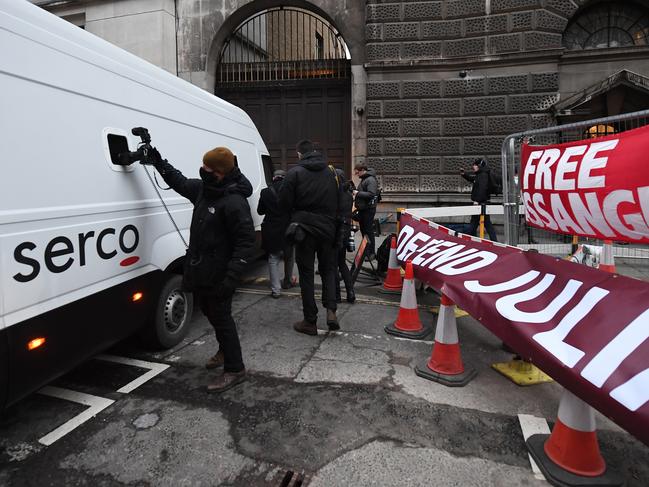
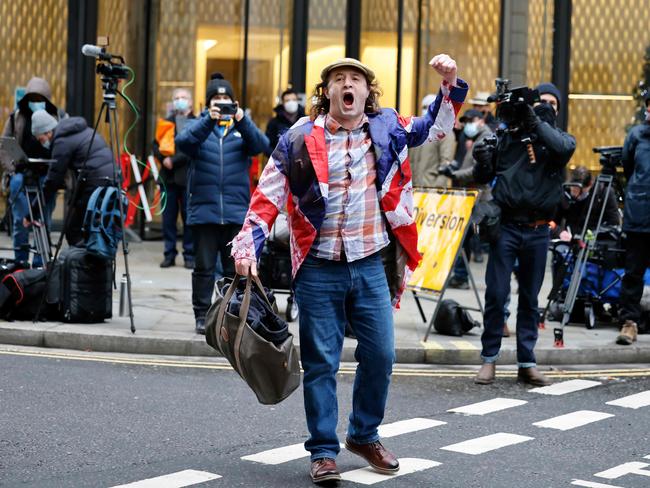
Assange had been publishing details of cables with newspaper and media outlets across the world for months, with names removed.
However, he then dumped all of the documents online, which included the names of US informants in Iraq and Afghanistan.
The Guardian, which has been working with WikiLeaks to publish the documents, condemned the dump because it had only agreed to use information that had been thoroughly checked and de-identified.
Judge Baraitser said that at least 50 informants were forced to flee their countries following the leaks, which uprooted them and their families.
She rejected all of the defence arguments about freedom of speech, or that Assange’s rights would not be protected in the United States.

Judge Baraitser said it was possible to find an impartial jury despite coverage of his case and the length of time between the offending and when the charges were laid.
She had also rejected the impact that the decision would have on Assange’s fiancee Stella Moris and his children Gabriel and Max, saying it was “sadly” a common part of extradition proceedings.
The WikiLeaks founder had feared that incoming US president Joe Biden will show him no mercy after labelling him a “hi-tech terrorist.”
Assange’s father John Shipton has now based himself in the United States to co-ordinate his fight.
Another of his relatives was able to visit him in southeast London’s maximum security Belmarsh prison in October, with the conditions described as grim.
Mr Biden, who takes over America’s top job on January 20, has previously been critical of Assange.
And WikiLeaks was also behind the leak of 20,000 emails linked to Hillary Clinton, the Democratic nominee who lost to Mr Trump in 2016.
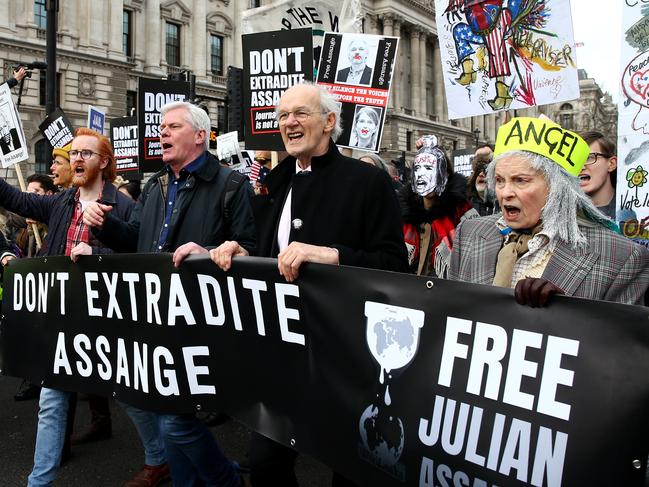
Assange was being sought for extradition to America over the leaking of hundreds of thousands of classified government documents in 2010 and 2011, which went out unredacted several months after they had been reported on by newspapers.
One of the charges against Assange is that he helped US soldier Chelsea Manning crack passwords, however, he has denied that claim and the prosecution arguments that he put sources’ lives at risk by publishing their names.
Mr Biden said at the time: “If he conspired to get these classified documents with a member of the US military that’s fundamentally different than if somebody drops on your lap here … you’re a press person, here is classified material
“I would argue that it’s closer to being a hi-tech terrorist than the Pentagon Papers.”
Those comments, and the Clinton hack, have some in Assange’s camp worried.
Baywatch star Pamela Anderson at the weekend called on Mr Trump to pardon Assange.
Former Republican presidential nominee Sarah Palin, best known as former Governor of Alaska, has also sought clemency.
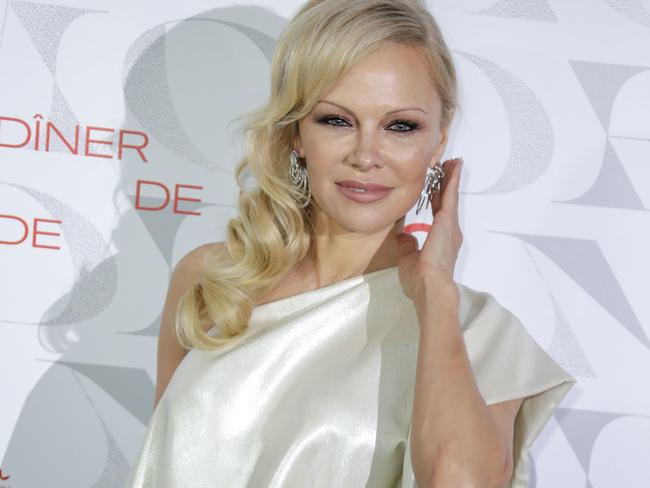
Assange’s partner Stella Moris, with whom he had two children during his seven years hiding out in the Ecuadorean Embassy in London, said at the weekend that she was living a nightmare.
She claimed that the charges against Assange were “political” and worried that their children Gabriel, three, and Max, 22 months, would grow up without a father.
“Julian embarrassed Washington and this is their revenge,” Ms Morris said in an opinion piece in a British newspaper.

Ms Moris said that if it was found that Assange could be extradited, it would “rewrite the rules of what is permissible to publish.”
Assange had been wanted in Sweden over rape claims, but the case was dropped.
Assange was remanded in custody ahead of a bail application at Westminster Magistrates’ Court on Wednesday.
His lawyers sought more time to prepare their arguments.
Assange, who was wearing a prison issued jumper over the shoulders of his suit, was relaxed after the hearing.
He chatted with his lawyers and fiancee who was in the Old Bailey courtroom.
If you are experiencing mental health issues or suicidal feelings contact Lifeline on 13 11 14 or Beyond Blue on 1300 224 636. If it is an emergency please call 000.
Read related topics:Scott Morrison



